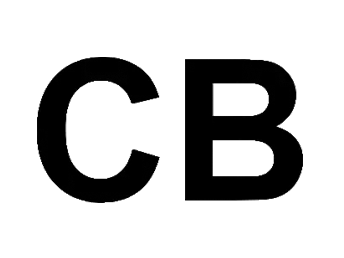
CB Certification
The CB system (IEC system for qualification testing and certification of electrical products) is an international system operated by IECEE. The certification bodies of IECEE member countries test the safety performance of electrical products on the basis of IEC standards. The test results, namely, the CB test report and the CB test certificate, are mutually recognized in IECEE member countries. The purpose is to reduce the international trade barriers arising from the need to meet the certification or approval criteria of different countries. IECEE is the abbreviation of the International Electrotechnical Commission Organization for Testing and Certification of Electrical Products.
Scope of CB system
The products covered by CB system are within the scope of IEC standards recognized by IECEE system. When more than three member states declare that they want and support a certain standard to join the CB system, the new IEC standard will be adopted by the CB system. The IEC standards currently used are published in the CB Bulletin and IECEE website.
At present, electromagnetic compatibility (EMC) is not included in the CB system, unless specifically required by the IEC standards used. However, the CB system has begun to investigate its members’ willingness to conduct EMC measurement together with safety testing. The results of this survey will be published in the CB bulletin with this theme.
Relevant institutions
National Certification Body (NCB) is a certification body that issues nationally recognized certificates of conformity to electrical products. To become a member of the CB system, NCB’s internal quality system and technical capabilities must meet specific requirements. An NCB can be classified as an approved NCB or a certified/approved NCB according to its qualifications.
Approved NCB
One NCB recognizes the CB test certificates and CB test reports issued by other license-issuing NCBs, and uses them as the basis for issuing its own national certificates and marks in specific product fields and standards.
The approved NCB does not automatically have the power to issue the CB test certificate.
Issuing/approving NCB
In addition to the functions of recognizing NCB, the issuing NCB has the right to issue CB test certificates within the scope of its registered standards.
The approval scope of the issuing/approving NCB can be greater than its issuing scope. The scope of issuance and approval is published in the relevant “scope” area on the website.
CB laboratory (CBTL) is the laboratory accepted by the CB system. It tests one or more product categories and issues CB test reports under the responsibility of a specific NCB. CB laboratory can cooperate with different NCBs in the CB system, but when it cooperates with multiple NCBs, it can only cooperate with one NCB to test a certain product category (such as OFF).
CB test certificate and CB test report
The CB test certificate is a formal CB system document issued by the authorized NCB. Its purpose is to inform other NCBs that the tested product samples are found to meet the current requirements. The CB test certificate should not be used for advertising, but it is allowed to use the existing CB certificate as a reference.
CB report is a standardized report, which lists the requirements of relevant IEC standards in the form of an item-by-item list. The report shall provide the results of all required tests, measurements, verifications, inspections and evaluations, which shall be clear and unambiguous. The report also includes photos, circuit diagrams, pictures and product descriptions. According to the rules of the CB system, the CB test report is only valid when it is provided with the CB test certificate.
If an NCB has the necessary test equipment and technical capabilities, it can test and evaluate products according to the national differences of other countries. These additional tests are attached to the CB test report as attachments, and are generally approved by other approved NCBs.
Apply for CB certificate
For the application of CB test certificate, the following points should be noted:
-The application for CB test certificate can be submitted by the applicant to any “issuing/approving” NCB covering the product range.
-The applicant can be either a manufacturer or an entity authorized to represent the manufacturer.
-The application may include one or more factories producing products in one or more countries.
-Applicants/manufacturers/factories located in countries without IECEE member institutions need to pay an additional fee of 150 Swiss francs for each CB test certificate to compensate for the operation cost of the system. This fee will be charged by the NCB that accepts the CB test certificate application and will be credited to the account of IECEE.
-The applicant can request NCB to test the products according to the national differences of the countries where the products are sold.
Member States of the current CB system
Up to now, 66 certification bodies from 51 countries and more than 270 CB laboratories under them have participated in this mutual responsibility system. The member countries participating in the CB system include all the major exporters of China’s mechanical and electrical products:
Argentina, Austria, Australia, Belarus, Belgium, Brazil, Canada, China, Czech Republic, Germany, Denmark, Spain, Finland, France, Britain, Greece, Hungary, India, Ireland, Israel, Italy, Japan, South Korea, Mexico, Netherlands, New Zealand, Norway, Poland, Portugal, Russia, Romania, Singapore, Slovakia, Slovenia, South Africa Türkiye, Ukraine, the United States, Yugoslavia, Switzerland, Malaysia, Sweden, Thailand, the United Arab Emirates, Saudi Arabia, Pakistan, Bulgaria, Uruguay.
